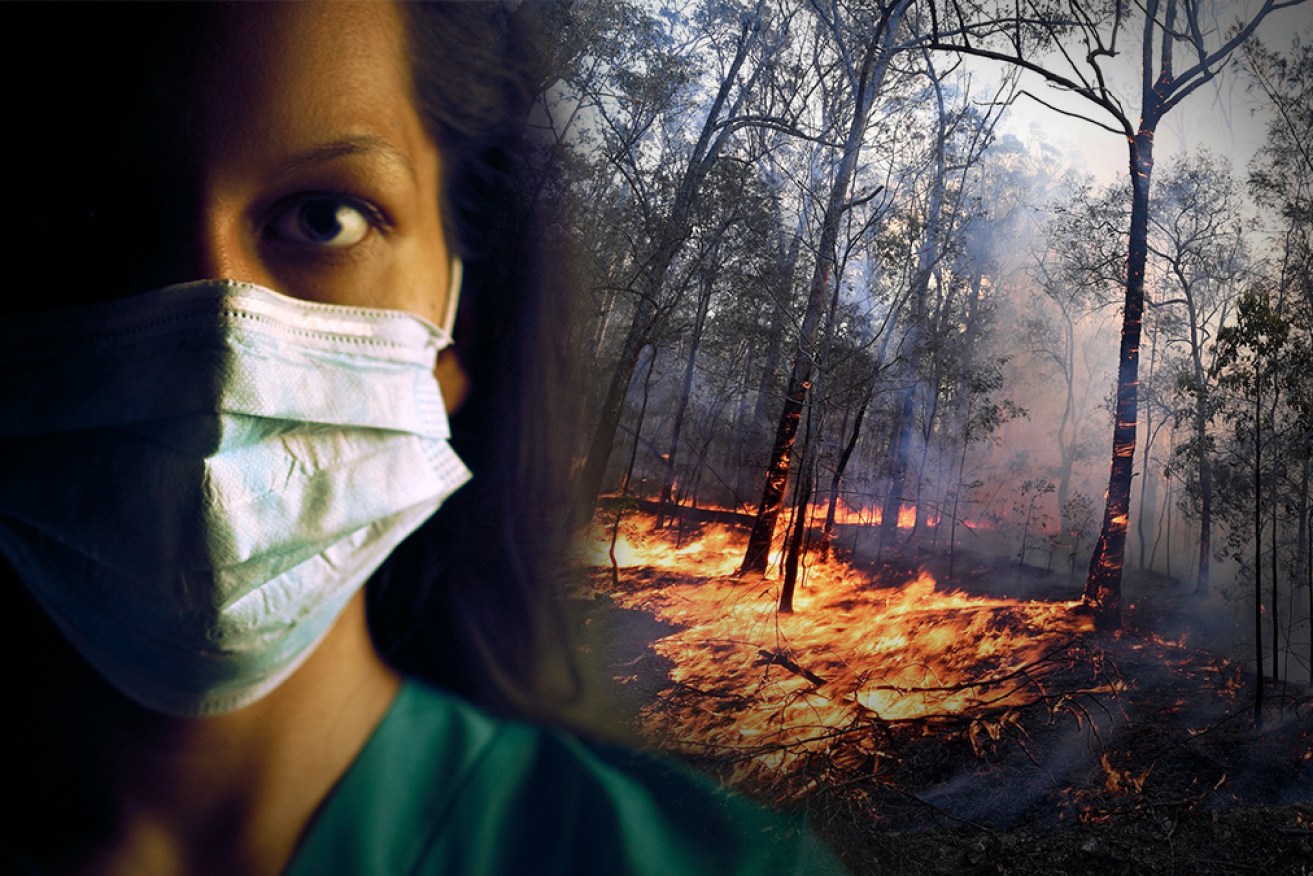Report: Health sector must prepare for climate change, like it did with COVID-19


Australia's health sector is being urged to prepare for climate change-related health problems. Photo: TND/Getty
In years to come, Australians will be more likely to suffer health problems like lung damage, depression and shortness of breath – and it’s not due to the coronavirus pandemic.
It’s climate change, and economists are urging our health sector to start preparing for it.
Australia is already about 1.5 degrees Celsius warmer than it was 100 years ago.
After decades of government inaction, the effects of climate change are only going to accelerate – and all of us are going to cop the heat.
Increasingly frequent and ferocious bushfires will lead to more Australians suffering mental health issues and lung problems.
Deadly heatwaves will kill more vulnerable people, while major flooding events and cyclones will leave thousands injured and homeless.
In a new report by the Grattan Institute, top policy experts warn: “The health sector must rapidly adapt to the new climate realities facing Australia.”
“In 2020, Australia listened to the science and acted on the health advice to prevent some of the catastrophic health costs caused by COVID-19,” the authors wrote.
“Now, we must do it again.”
What do we need to do?
All state and territory governments should ensue their health sectors incorporate climate change into risk assessments and disaster planning, the authors said.
According to the report, Australia must also establish a specific climate change and health subcommittee of the Australian Health Protection Principal Committee.
That means the same chief health officers who have become familiar at coronavirus-related press conferences – like Victoria’s Professor Brett Sutton or South Australia’s Professor Nicola Spurrier – will be made to prioritise climate change in their work plans.

Chief health officer Brett Sutton has become a regular face on the TV screens of Victorians. Photo: AAP
Climate-related health risks like air pollution must be monitored in real time, and data must be tracked and reported on the immediate health effects of climate change like injury and death due to heatwaves.
These risks must also be clearly communicated to the public so Australians are better prepared, they said.
Mental health services and support systems must be improved, too.
“Mental health literacy training should be used to improve at-risk communities’ resilience to natural disasters, particularly long-lasting disasters such as droughts,” the report says.
“When disaster hits, governments should ensure community mental health services are equipped for the increased need for services in the short and long term.”
Emergency response systems must also be better prepared for natural disasters, with a plan in place for quickly organising GPs to work in evacuation centres and hospitals with high demand.
“The health sector should demonstrate leadership in emissions reduction,” they wrote.
“State and territory governments should develop plans by the end of 2023 for net-zero public health sectors.”
Some Australians will hurt more than others
A person’s job, location, age and pre-existing health conditions will all influence how badly they are affected by climate change in Australia.
For example, farmers and rural communities are going to suffer most from droughts and bushfires, while heatwaves are more likely to harm young children and the elderly.
Our health response to climate change must include the help of local knowledge, the report’s authors said.
“One-quarter of the Indigenous population of New South Wales and Victoria lived in areas affected by last summer’s bushfires,” they wrote.
“Australia’s health response to climate change must be tailored to, and driven by, the communities that will need the most help.”








